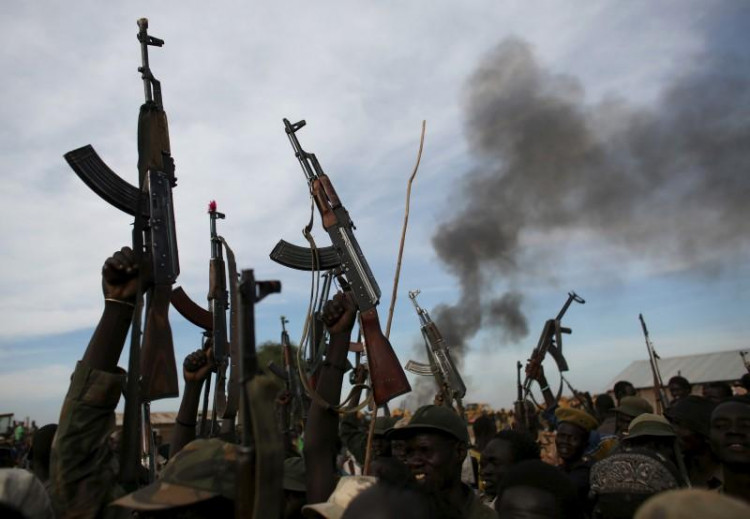Sudan officials said at least 20 of their soldiers have died in violent clashes with Ethiopian forces along its border with the country over the weekend. Officials said their troops were ambushed by Ethiopian forces while they were traveling through the Atbara River.
A member of the border commission of Sudan's southeastern Gadaref state told reporters that the soldiers were suddenly bombarded with enemy fire and artillery. Since the attack, Sudan has sent additional forces on the riverbank. Officials said the situation on the border is now "very tense."
Sudan officials did not say how many Ethiopian forces were killed during the clash. In a statement released on Sunday, Sudan's army claimed that they had suffered "heavy losses of life" when Ethiopian troops and militia attacked their soldiers.
The attack occurred after more than a year of violence and conflict in the region. Both countries have repeatedly clashed in the al-Fashqa region, an area that covers in between Sudan and Ethiopia's territory. The region mainly produces cotton and sorghum for both countries.
The area has continued to be volatile, with experts speculating that the patch of land could become the flashpoint for an explosive conflict between the two countries. Recently, Ethiopia had proposed plans to build a massive hydroelectric dam on the main side stream of the Nile River, a plan opposed by Sudan.
In recent years, both countries have been experiencing intermittent internal conflicts.
In Ethiopia, the government is still busy fighting rebel groups in its Tigray region. The civil war has resulted in the deaths of thousands of military forces and civilians, resulting in international groups declaring a serious humanitarian crisis. Non-government organizations have been pleading with the Ethiopian government to open its borders to foreign aid to help the thousands in the country in danger of dying from starvation.
Last month, Sudan's prime minister was forcefully removed from his position through a military coup. The takeover hindered the country's efforts to organize democratic elections in the country. Earlier in the month, government officials were able to broker a deal with the military under growing international pressures. As part of the deal, the military agreed to reinstate the ousted prime minister.
During a speech earlier in the month, U.S. Secretary of State Antony Blinken cautioned against the rise of extremism and authoritarianism in Africa, stressing that the continent is grappling with coups, police brutality, and bloodshed.





